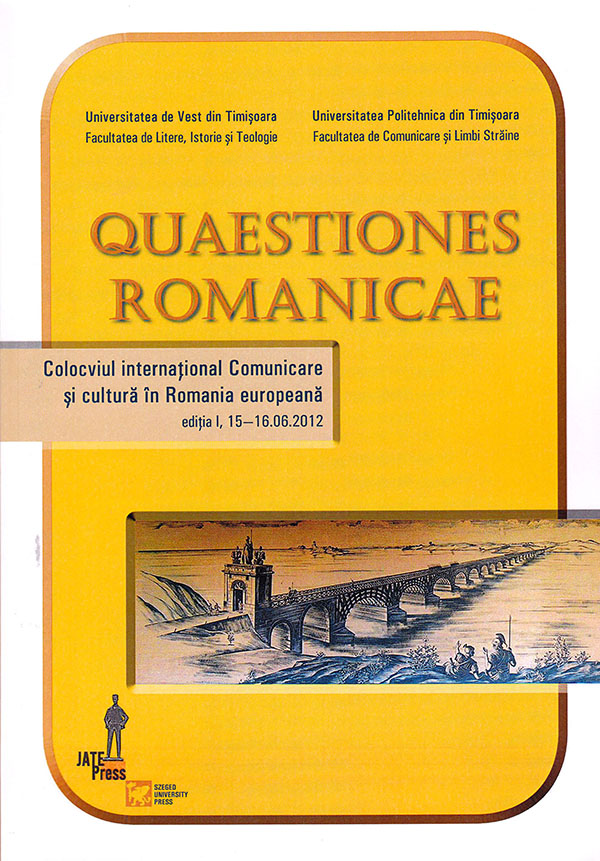Diálogo ficcional y mímesis de la oralidad en La consagración de la primavera y su traducción al rumano
Abstract: (Fictional Dialogue and Feigned Orality in La consagración de la primavera and its Romanian Translation) The construction of orality in fictional texts and its translation are indeed important aspects which did not receive as much attention as they should have. The study of feigned orality in the original text and in its versions in other languages may provide interesting explanations regarding the mechanisms that create them, which favours a much clearer vision of the text’s structure, of its stylistic convergences or divergences and their possible consequences in a macro-textual level. The aim of the present paper is to analyse the elements that constitute the illusion of orality as means of communication, especially those that form the fictional dialogue, in the novel La consagración de la primavera (The Rite of Spring) and its Romanian translation. We study and compare some of the strategies and solutions adopted by the author and the translator, solution which are mainly characterized by the desire to reduce the distance between the writer, his characters and the reader. We have placed emphasis on the phonetic, graphic and semantic resources and evidence, on a few morphosyntactic aspects, on the markedly oral and colloquial language, in its transfer to the target language.
Keywords: feigned orality, translation, novel, Spanish, Romanian.
Resumen: La construcción de la oralidad en los textos ficcionales y su traducción son importantes y no han recibido toda la atención que merecerían. El estudio de la oralidad fingida en un texto original y en sus versiones en otras lenguas puede proporcionar explicaciones interesantes sobre los mecanismos que la crean, permite ofrecer una visión más clara de la estructura de cada texto, las convergencias/divergencias estilísticas entre ellos y las posibles consecuencias a nivel macrotextual. El objetivo del presente trabajo es analizar los elementos que constituyen la ilusión de la oralidad como tipo de comunicación, especialmente los que configuran el diálogo ficcional, en la novela La consagración de la primavera y en su traducción al rumano. Estudiaremos y compararemos algunas estrategias y soluciones adoptadas por el autor y el traductor, soluciones que se caracterizan principalmente por el deseo de reducir la distancia entre el escritor, sus personajes y el lector. Haremos especial hincapié en los recursos e indicios fonéticos, gráficos y semánticos, en algunos aspectos morfosintácticos, en el lenguaje marcadamente oral y coloquial, en su transferencia a la lengua meta.
Palabras clave: oralidad fingida, traducción, novela, español, rumano.
